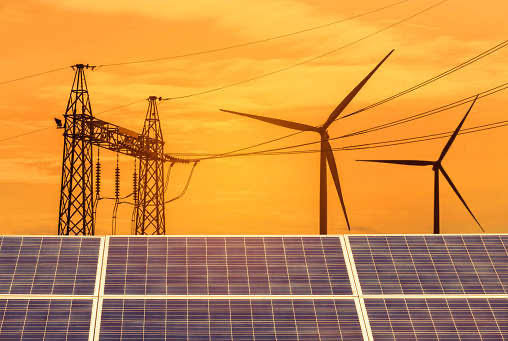The global transition to renewable energy sources could face a significant obstacle due to rising interest rates, according to industry analysts. This development raises concerns about the financial viability of renewable projects and the potential for delays in meeting international climate targets.
Renewable Sector Feels the Pinch of Higher Borrowing Costs
Interest rates in the United States, a leading force in renewable energy development, have been steadily climbing since 2023. This trend, driven by efforts to curb inflation, has made it more expensive for companies to borrow money. Renewable energy projects, unlike traditional fossil fuel developments, are particularly vulnerable to these rising borrowing costs.
“Renewable energy projects require a substantial upfront investment in infrastructure and technology,” explained Vegard Wiik Vollset, a renewable energy analyst at Rystad Energy. “This capital-intensive nature makes them more susceptible to fluctuations in interest rates compared to oil and gas projects.”
Vollset further clarifies that existing renewable projects with secured financing before the recent rate hikes are less affected. However, entirely new projects now face a steeper financial climb due to the increased cost of borrowing.
The growing importance of renewable energy in the U.S. energy mix is undeniable. Data from the U.S. Energy Information Administration reveals that over 80% of planned new energy installations in 2023 were from renewable sources like solar, wind, and battery storage. These clean energy technologies are crucial for reducing reliance on fossil fuels and mitigating climate change.
Financial Hurdles Threaten Climate Goals
The recent rise in U.S. Treasury yields reflects strong inflation data and market predictions of a potential interest rate cut by September 2024. Even minor increases in interest rates can significantly impact the total cost of renewable energy projects.
A report by Wood Mackenzie, a global consulting firm specializing in energy, infrastructure, and commodities, highlights this concern. The report estimates that a two-percentage-point increase in interest rates could inflate the levelized cost of electricity (LCOE) for renewable projects by as much as 20%. LCOE represents the average revenue needed to cover the expenses of building and operating a power plant over its lifespan.
Renewable energy is a cornerstone of the Paris Agreement, a landmark international treaty adopted in 2015 that aims to limit global warming. The agreement outlines ambitious goals for reducing greenhouse gas emissions and transitioning to clean energy sources.
Analysts at Wood Mackenzie warned that a slowdown in the renewable energy sector due to rising interest rates could jeopardize these international climate targets. “Reaching net-zero emissions will be significantly more challenging and expensive if interest rates remain high,” the report concluded.
The future of the global clean energy transition hinges on the ability of the renewable energy sector to adapt to the changing financial landscape. While rising interest rates pose a significant challenge, the industry’s commitment to innovation and collaboration offers hope for overcoming these hurdles and achieving a sustainable energy future.
Source: Reuters



